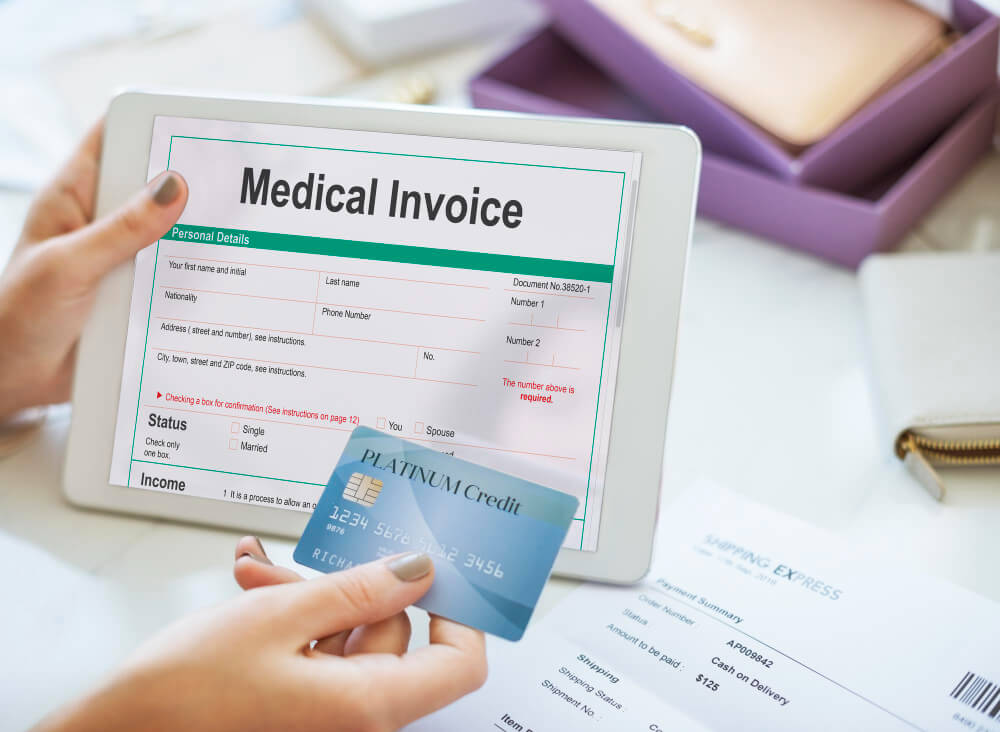After an accident, medical bills can pile up unmanageably. In New York, the no-fault law ensures you are covered in case you are in an accident. Your insurance company will cover your medical bills up to some extent. If someone else was hurt in the accident, their insurance provider will pay for the medical bills.
This law was created to ensure that you get compensation fast without the need for lawsuits. With the no-fault law, there will be no finger-pointing or investigations, and this expedites the compensation process. However, the law doesn’t always work as it should, especially when your injuries are extensive and expensive.
Car Insurance and Medical Insurance and Your Medical Bills
Your auto insurance policy can cover up to $50,000 in paying your medical bills and lost wages. In case of a car accident, your auto insurance is the primary insurance. This means that the insurer pays for your medical bills before any other insurer. The insurance will cover necessary medical expenses such as:
- Ambulance
- Diagnostic imaging
- Nursing services
- Emergency medical treatment
- Hospital stays
- Assistive technology
- Rehabilitation
- Counseling
- Doctor follow-up visits
- Physical therapy
- Prosthetics
- Surgery and any other medical procedure
If your medical bills exceed $50,000, and you had supplemental insurance, it kicks in from there. If you do not have supplemental insurance, your medical insurance provider will take on from there and start paying your bills.
Medical Bills that Exceed Your Insurance Policy Limits
In instances where you suffer multiple fractures, brain injuries, or damages to the spinal cord, you are allowed to seek ways to meet your medical bills beyond the no-fault system. According to the law, serious injuries include:
- Death
- Loss of a fetus
- Significant body disfigurement
- Fractures
- Loss of body organs or a part of the body
- A part of the body or an organ ceases to function
- Any injuries that prevent you from performing your daily duties for at least 90 days after the accident
If you meet the serious injury threshold, you can seek solutions outside the no-fault system. One option is to file a lawsuit through your injury attorney against the driver or the party who caused the accident. It takes a while to get compensation from the at-fault party, but in the end, you might end up getting reimbursed for the money you’ve spent and the wages you’ve lost.
Will You Have to Meet Part of your Medical Bills Out-of-Pocket?
In most cases, when you receive bills from the doctor, the ambulance, hospital, or any other party, you give your insurance details and send the bill back for the insurance company to take care of them.
Some circumstances will force you to meet the medical cost. These circumstances include:
- Insurance Contract Obligations – Depending on your insurance policy, you might have to copay and pay for insurance deductibles. These minimums have to be met before the auto insurance starts making any payments.
- You file a claim late – If you fail to file a claim within 30 days after the accident, the insurance provider will deny your claim, and you will have to meet all your medical bills out of pocket.
- You broke the law to end up in an accident – There are exceptions to the no-fault law. If you were convicted for drunk driving or street racing on the day you had an accident, the insurance company could deny your claim.
- Your treatments do not fall under “necessary medical care.” This is especially so when you are under experimental therapies or you see specialists often. If your injuries are extensive, it is challenging to get full coverage for all the specialists you need.
- You received compensation from the at-fault party. In most cases, the insurance company might try to recover money from a settlement. This process is referred to as subrogation, and you will have to reimburse the insurance company from the compensation. Note that a hospital should not charge you more than they were willing to charge the insurance company (something called balance billing). If they do that, you have the right to sue them.
Pedestrians and Riders Accidents
Who covers you if a motorist hits you on a scooter, bike, rollerblade, or skateboard? Payment of medical bills in such a case involves:
- At-Fault Driver – The motorist who hits you should cover your medical bills from their insurance. Max payment in such a case is $50,000.
- Uninsured Motorist Coverage – If the motorist who hit you is not insured, or they are underinsured, you can seek the Uninsured Motorist Coverage from your insurance policy or a policy of someone close to you.
- Motor Vehicle Accident Indemnification Corporation, MVAIC – This corporation covers motorists, cyclists, and pedestrians hit by an uninsured or underinsured motorist.
Work with an injury attorney to get the compensation you deserve and avoid meeting your medical costs out of pocket.

